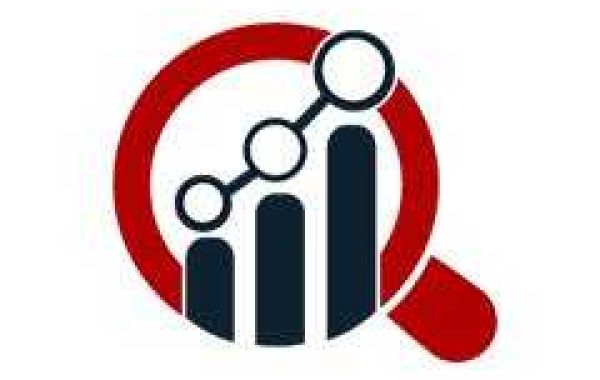This research was conducted by the poem writing service
There is an important distinction between tacit and explicit knowledge. Tacit knowledge is difficult to transfer to other people through traditional ways such as writing or verbal communication. Thus, the mechanisms of transferring, acquisition and the potential of aggregation are different in such kinds of knowledge. Tacit knowledge cannot be easily codified and transferred (Taylor, 2007). It can be generated only through practical experience, while explicit knowledge is largely based on logical reasoning. Tacit knowledge refers to a specific context and cannot be easily aggregated, while explicit knowledge may be aggregated in accordance with main laws of logic.
The management of organization knowledge assets tends to become one of the main factors of long-term competitive positions in the present era of globalization. It explains a high popularity of knowledge management among business people from both the public and private sectors (Biygautane Al-Yahya, 2011). As it contributes to the optimization of the creation and sharing of knowledge, it constitutes a significant interest for both commercial and non-commercial organizations. Current paper deals with the examination of organizational context of knowledge management of the Ministry of Works in the Kingdom of Bahrain. On the basis of analysis, relevant recommendation about the implementation of a knowledge management system will be formulated.
Organization
The Ministry of Works in the Kingdom of Bahrain operates according to legal standards approved in the National Strategic Master Plan for Bahrain (Ministry of Works, 2014). The Ministry mostly concentrates on two main areas. The first one is infrastructure development that includes a large number of projects in the spheres of construction, strategic planning and maintenance of drainage systems and other social networks in the country. The second one refers to project management, design and construction responsibilities.
The Ministry aims at improving the general standard of living of the population through improving the national infrastructure. The main attention is paid to searching for strategic solutions and long-term sustainable development. It uses the balance scorecard methodology for implementing its performance management practices. However, the Ministry has modified the classical model and has adjusted it to the local conditions. It tries to contribute to providing the necessary conditions for creating maximum value for its stakeholders and national consumers.
The Ministry of Works actively cooperates with the national private sector and creates equal opportunities for all companies regardless of their sphere of operations. The Ministry also encourages investments as it is the main source of the subsequent innovations and higher quality standards.
Organizational Context of Knowledge Management
Although national governments understand the importance of investing in attracting human capital and improving knowledge management practices, current state of affairs in this sphere is characterized by low returns regarding transferring knowledge (Biygautane Al-Yahya, 2011). Thus, it is necessary to specify the main problems in relation to tacit knowledge, knowledge acquisition, retention and sharing.
Some problems associated with tacit knowledge come from the essence of this kind of knowledge. In particular, as this knowledge cannot be codified and easily transferred, many government education programs may be proved inefficient. Another problem is forecasting the consumers’ needs in future periods of time. As the dynamics of consumer valuations always include the elements of uncertainty, it is impossible to determine them with the use of statistical or econometric methods.
The acquisition of knowledge cannot occur automatically and usually requires the various projects implementation (Mohammed, 2006). Therefore, Bahrain may successfully utilize those types of knowledge that are directly related to the projects that are implemented or may be implemented in the country. However, there are significant problems with other types of knowledge because the absence of corresponding projects does not create the necessary opportunities for people. It includes both, the objective aspects (such as the lack of practical experience in some spheres) and the subjective ones (for example, the absence of adequate motivation).
Knowledge retention is another problem that exists in various countries including Bahrain. As human resources are fixed neither to the sphere of operations nor to their future locations, there are substantial risks of declining the national knowledge potential in the near future. Therefore, all government institutions should develop the corresponding environment that will meet the existing high demand of the global and dynamic world.
However, it seems that the main problem refers to knowledge sharing as it is the main component of effective utilization of all available resources. Knowledge sharing in the public sector should be organized as a public good because profit motivation is absent in this context (Seba, Rowley, Delbridge, 2012). There are a number of other more specific challenges for government organizations related to the issue of knowledge sharing. They include improving the quality of services provided, shortening the needed time of operations, optimizing information decisions, working with fewer amount of assets and reducing the total time necessary for acquiring new knowledge (Jalal-Karim, Arayed, Abdulla, Mohamed, 2010). All these local issues should be properly integrated and addressed in a complex.
It is reasonable to use the SWOT analysis for clarification the Ministry’s strategy. The SWOT analysis includes the examination of the Ministry’s strengths, weaknesses, opportunities and threats that may serve as the foundation for the implementation of the necessary reforms.
Strengths
1) The Ministry of Works is a government organization and it is not subject to profit-and-loss pressure and may concentrate on the fulfillment of strategic functions.
2) Its sphere of operations is strictly specified in accordance with the national standards.
3) Its funding is provided through government sources; thus, the flow of financial and other resources is stable.
4) The Ministry uses various innovation technologies in its operations.
5) The Ministry’s personnel have comparative advantages in the sphere of tacit knowledge because the majority of employees have a significant practical experience in this area.
Weaknesses
1) Not all Ministry’s employees are highly motivated and demonstrate their full potential.
2) The existing bureaucratic system is comparatively centralized and not highly flexible.
3) The lack of the free-market price system in the process of resources allocation.
4) The absence of the detailed strategy for achieving the stated objectives.
5) Some cultural difficulties in the sphere of knowledge management.
Opportunities
1) The possibility of using the successful experience of the Treated Sewerage Effluent Project for subsequent reforms in the country.
2) The opportunity of increasing the qualification of employees through government grants and other programs.
3) The possibility of implementing long-term projects.
4) The opportunity of a close cooperation with partners from other countries.
5) The possibility of reallocating resources within industries in order to increase the general effectiveness.
Threats
1) Low effectiveness of new projects due to low motivation of employees.
2) The negative external global environment.
3) The lack of cultural understanding and potential losses.
4) Environmental challenges.
5) The lack of correspondence between the existing infrastructure and future consumers’ needs.
Thus, the Ministry has substantial strengths and a number of attractive opportunities. At the same time, the existing threats may have significant negative affect the on the future dynamics of the Ministry’s operations. Therefore, it is necessary to strengthen the positive aspects and minimize the negative ones. At the same time, employees currently have a number of unique possibilities and enjoy preferable conditions.
In particular, current knowledge sharing practices allow learning from the experience of other government organizations, as well as from experts of other countries. Modern hi-tech tools contribute to the higher productivity of personnel and help acquire all sorts of knowledge. Moreover, the Ministry constantly introduces innovations; it indirectly contributes to a more efficient acquisition of tacit knowledge. The employees have the opportunity to verify various theoretical statements in their practice. In this way, they may arrive at the conclusions that describe the actual conditions in the most correct way. Thus, it will increase their tacit knowledge. Moreover, the Ministry encourages information exchange among its employees. It leads to a more equal distribution of knowledge among personnel.
Some competitive elements are also present in current system. The Ministry compares the effectiveness of different projects and redistributes resources to the most efficient ones. The most successful cases such as the Treated Sewerage Effluent Project are widely examined and used as a model for further ones. The Ministry tries to introduce free environment for discussions where each employee may propose his/her vision of current challenges and opportunities. Although the Ministry functions in the public sector, it uses the opportunities of the private one, especially regarding the profit-and-loss system as the Ministry aims at generating positive financial results (although it is not its main purpose).
In general, the Ministry tries to adapt its structure to the needs of its personnel and recognizes its human capital to be its main asset and main factor of the long-term successful development. Thus, the Ministry’s employees have a number of unique opportunities that are absent in other Ministries and other industries. It may be expected that employees’ motivation for productive and creative work will increase in the near future.
Bahrain has a number of similarities in comparison with Arab countries. In particular, they have common cultural problems that should be addressed using the same social and economic resources. Knowledge sharing is always conducted on a specific environment. It means that it depends on several external parameters, including culture. If the knowledge sharing process is optimally organized, culture serves as a factor encouraging sharing (Mohammed, 2006). However, Bahrain has substantial cross-cultural differences in comparison with other regions of the world. It creates a number of serious problems both for the Ministry of Works and the national economy as a whole.
As people from different cultures interpret the same information differently, their communication patterns may not be optimal. Therefore, the Ministry of Works should address this global problem through creating the corresponding organizational culture. The first basic principle that should be adopted by all employees is that knowledge grows by the process of sharing (Mohammed, 2006). It means that the interests of all people are not antagonistic and may be efficiently balanced. The Ministry’s employees should become better aware of the global trends and more involved in the global innovation projects. At the present moment, the Ministry also declares its devotion to integration, but not all employees demonstrate the necessary motivation.
Current cultural problems negatively affect the flow of information in several ways. Firstly, its delivery is time-consuming and the overall productivity tends to diminish. Secondly, some misunderstandings may emerge that may lead to financial and other losses. Thirdly, Bahrain may not participate in some potentially beneficial projects due to significant cultural differences. Thus, cultural problems seem to be the most urgent ones at the present moment.
All these challenges may be successfully overcome only if all main components (people, process and technology) are optimized and well-balanced (Jalal-Karim et al, 2010). It means that modern cultures include not only people’s psychological perceptions but a number of “objective” processes and technologies. Thus, the modern global world is characterized by close interrelations between various aspects of the social and technological environment.
In order to successfully address these issues, the Ministry of Works should clarify the reasons that do not allow people share knowledge in the most effective way. It is necessary to investigate this issue from both, the formal (in accordance with technological information) and subjective (according to employees’ responses) perspectives. The understanding of these causes may substantially increase the effectiveness of knowledge management practices of the Ministry in general (Jalal-Karim et al, 2010). If the cultural challenges are properly addressed, the process of decision-making may become more developed and based on the close evaluation of various alternatives.
Recommendations for Implementing a Knowledge Management System at Ministry of Works in Kingdom of Bahrain
There is a strong need for implementing a knowledge management system at Ministry of Works because it is the main factor contributing to a more effective realization of its functions. First of all, cultural issues should be addressed in a systematic way. Some business projects in Arab countries and Bahrain are based on mutual trust and respect without any formal contract agreements (Seba, Rowley, Delbridge, 2012). Although it may prove being effective in dealing with Arab partners, it is reasonable to establish the detailed contracts with all partners especially from Western countries. It may help not only avoid some potential misunderstandings and conflicts but also demonstrate the Ministry’s eagerness to work under the internationally recognized conditions.
It is also reasonable to use various quantitative techniques to specify the exact influence of independent variables on the overall productivity of the Ministry. For example, it is possible to use the ANOVA model and construct various regression models. On this basis, the most statistically significant factors may be determined. The recent research shows that such factors as importance, sharing and difficulty are statistically significant in influencing the employees’ attitude to work (Jalal-Karim et al, 2010). Their attitude and motivation affect the ultimate Ministry’s productivity and efficiency.
However, the main set of recommendations may be derived from the SWOT analysis. The Ministry of Works may become more concentrated on the fulfillment of strategic projects and increase their scope as it is not strictly restrained by profit motives. The Ministry may use its comparative advantages more actively. In particular, the level of innovation and tacit knowledge adaptation may be significantly increased. At the same time, it is necessary to address the existing weaknesses and try to minimize them.
First of all, new motivation techniques should be introduced. It is reasonable to use both financial and non-material factors to encourage higher productivity among employees. The abovementioned statistical and regression techniques may help specify the most effective factors. The Ministry may optimize the structure of its employees; those of them who do not meet the minimum standards and are not responsive to the multi-cultural environment should be fired (Weir Hutchings, 2005). Current bureaucratic system should be revised and additional decentralization may be introduced. As a result, the majority of Ministry’s knowledge management operations may become more flexible and may better correspond to current needs of the population (Riege, 2005).
The Ministry may also introduce some profit-and-loss mechanisms in its operations in order to become more responsive to price signals and allocate scarce resources more efficiently. It is possible to facilitate cooperation with companies from the private sector and order some small projects or products from them if it allows economizing the Ministry’s funds. The Ministry should also develop a detailed strategy in relation to all its key goals. It means not only a large set of intermediate steps but the examination of various alternatives and scenarios (for example, the optimistic, pessimistic and the most plausible ones). It is also necessary to evaluate the Ministry’s influence on third parties and national interests in general.
In order to neutralize the existing cultural difficulties, it is reasonable to use the successful experience of some Arab countries and introduce modern educational programs (Skok Tahir, 2010). The Ministry’s personnel should be free to visit foreign countries and learn the experience of foreign professionals, as well as their culture, tradition, etc. The Ministry should not aim at neutralizing any cultural differences from other countries (as it is both impossible and undesirable) but try to encourage mutual understanding among the representatives of different cultures. It may substantially increase the number and scope of mutual projects in the sphere of infrastructure development.
The Ministry should be highly responsive to all existing opportunities and try to realize their full potential. In particular, the experience of the most successful projects should be shared among all employees and key success factors may be determined and discussed. The Treated Sewerage Effluent Project may serve as a model for subsequent projects and increase the average efficiency. Government funds may be used more effectively and it is reasonable to direct a large fraction of financial resources to the improvement of employees’ qualification as it is one of the main factors of the Ministry’s long-term development (Whee, Ngah, Seng, 2012). However, the funds should not be distributed mechanistically and it is necessary to compare the expected marginal productivity of workers with their salaries and the expenses associated with the increase of their qualification. The Ministry should aim at reaching the situation when the expected benefits substantially exceed the amount of direct and indirect costs.
As the Ministry has significant financial opportunities, it may increase the horizon for its analysis and thoroughly investigate a number of long-term projects. It is often possible to obtain much higher rates of profits in case of their successful implementation as such projects are generally cannot be realized by the small- and middle-size institutions. If the discounted effect is higher than in other alternatives, such projects may be realized. The number of international and domestic partners may increase in order to diversify activities and reach higher sustainability.
As the current global economic environment is subject to significant fluctuations that are beyond the Ministry’s control, it is reasonable to direct additional funds to forecasting purposes. If the Ministry may predict the main sources of risks at least in the near future, it may allow determining the main areas for diversification. Another recommendation refers to the adjustment of infrastructure innovations for future rather than the present consumers’ needs. The Bahrain’s internal business environment experiences substantial growth and new requirements to infrastructure tend to emerge. Consequently, the Ministry should take into account time lags associated with the production of infrastructure objects and be oriented on future needs.
Thus, there is a whole complex of recommendations that may increase the Ministry’s effectiveness and the productivity of its employees. All abovementioned recommendations should be realized simultaneously and do not contradict one another; in this case, they may lead to the emergence of the synergic infrastructure effect. Therefore, close controlling mechanisms responsive to the local challenges may be needed, as well.
Conclusion
Knowledge management presents a number of potential opportunities for the development of the Ministry of Works. The close analysis demonstrates that knowledge management practices cannot be introduced in isolation regarding other performance spheres. It requires reforms in such areas as motivation, resource allocation, cultural issues, etc. The Ministry of Works has a number of competitive advantages in relation to tacit knowledge of its personnel, and it may strengthen its positions through increasing the scope of long-term projects and the amount of innovations.
The Ministry of Works should minimize its weaknesses and respond to current threats in order to create the appropriate internal environment for knowledge management techniques. It is reasonable to increase the Ministry’s cooperation with foreign partners, as well as reach higher tolerance in the perception of other cultures. The dynamics of future consumers’ needs should be assessed in order to determine the optimal (from the point of view of the population) infrastructure projects.
References
Biygautane, M., Al-Yahya, K. (2011). Knowledge management in the UAE’s public sector: The case of Dubai. Dubai School of Government.
Davenport, T. (1994). Saving IT’s soul: Human centered information management. Harvard Business Review, 72(2), 119-131.
Jalal-Karim, A., Arayed, M. A., Abdulla, A., Mohamed, M. (2010). The significance of adopting knowledge management: Challenges and solutions in Bahrain’s government institutions. European, Mediterranean, Middle Eastern Conference on Information Systems.
Ministry of Works. (2014). About us. Retrieved from http://www.works.gov.bh/English/WhoWeAre/Pages/about-us.aspx
Mohammed, B. (2006). Beyond the boundaries of the project team. Third Gulf Conference on Roads.
Riege, A. (2005). Three dozen knowledge sharing barriers managers must consider. Journal of Knowledge Management, 9(3), 18-35.
Seba, I., Rowley, J., Delbridge, R. (2012). Knowledge sharing in the Dubai police force. Journal of Knowledge Management, 16(1), 114-128.
Skok, W., Tahir, S. (2010). Developing a knowledge management strategy for the Arab world. The Electronic Journal on Information Systems in Developing Countries, 41(7), 1-11.
Taylor, H. (2007). Tacit knowledge: Conceptualizations and operationalizations. International Journal of Knowledge Management, 3(3), 60-73.
Weir, D., Hutchings, K. (2005). Cultural embeddedness and contextual constraints: Knowledge sharing in Chinese and Arab cultures. Knowledge and Process Management, 12(2), 89-98.
Whee, T., Ngah, R., Seng, Y. (2012). The relationship of knowledge management capabilities, learning organization, and organizational performance in public sector of Dubai government. Knowledge Management International Conference.








